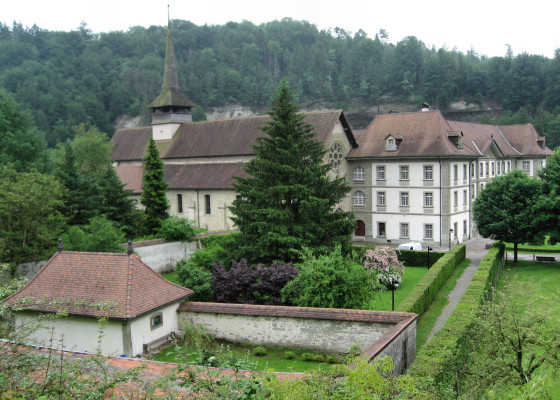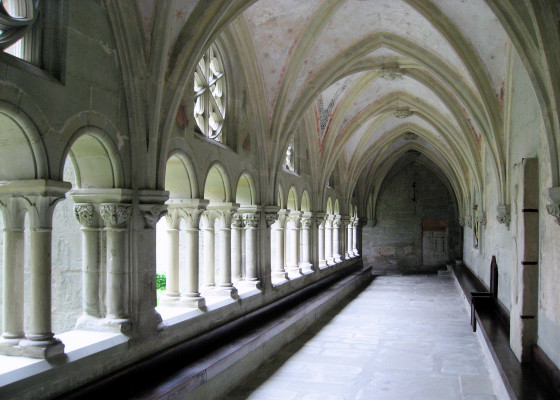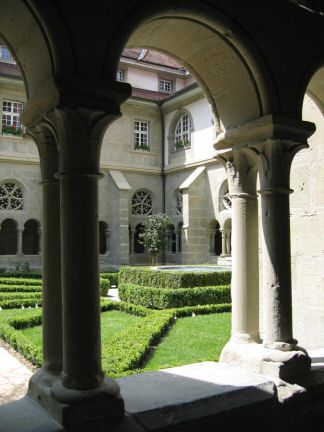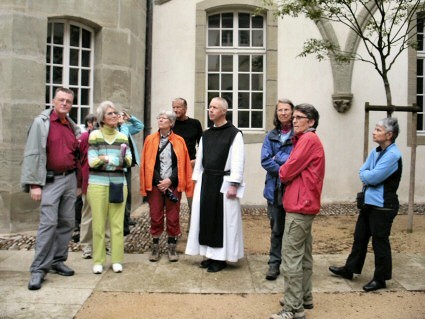The Cistercian monastery Hauterive is located in a loop of the river Saane about 7 km south of Fribourg (Switzerland).
The name 'Hauterive' in Latin Alta ripa, "High bank" comes from the nearby high sandstone cliffs that form the right bank of the Saane.
From the monastery history:
The Cistercian abbey Hauterive was founded between 1131 and 1137 by William (Gillaume) de Glāne, baron of Ecuvillens 1). At his request, the Cistercian Abbey of Cherlieu in Burgundy sent Abbot Gerhard here with 12 monks and a few brothers.
The founder, Knight of Glāne, entered the monastery himself and died in 1143. His tomb is in the left wall of the choir.
In 1185 Kappel am Albis was settled by monks from Hauterive.
1) In the 11th and 12th centuries, the town of Ecuvillens (situated on the pilgrimage route) was the centre of the powerful rule of the Lords of Glāne, whose castle is probably located on the La Vuerda peninsula above the Glāne. The Glāne is a tributary of the Saane (French: Sarine). Ecuvillens came under the rule of Fribourg in 1452

The present monastic buildings date back to the 18th century. The monastery was dissolved in 1848 as a result of the Sonderbund war.
In 1939 monks from Wettingen-Mehrerau came and the monastery was revived. On 30 October 1973, the Hauterive monastery was restored to full abbey status.
The main building
Staircase
Entrance to the church
The church was built between 1150 and 1160. It was the time of transition from Romanesque to Gothic style.
All the churches of the Cistercian Order, as well as this one, are consecrated to Our Lady. The feast of the Partroness is celebrated on the day of the Assumption of the Virgin Mary on August 15th.
The impressive choir stalls with representations of the apostles and prophets.
The magnificent Gothic window forms the eastern end of the altar house.
After the dissolution of the monastery in 1848, the stained glass was given to Zurich for restoration. Unfortunately not all of the original parts were returned. They have been sold to various museums.
They depict the apostles, St. Benedict and St. Bernhard and scenes from the life of Christ.
In the medieval cloister, 19 of the original 24 yokes are preserved. Above each triple arch is a mass-window.
The cloister was also the burial place of medieval noble families of Freiburg. A particularly beautiful ground grave is currently being uncovered and is being given a glass protection.

The cloister with the square patio.

View from the cloister into the inner courtyard

Father Hermann-Josef has arranged an interesting tour for us. Many thanks!
.

